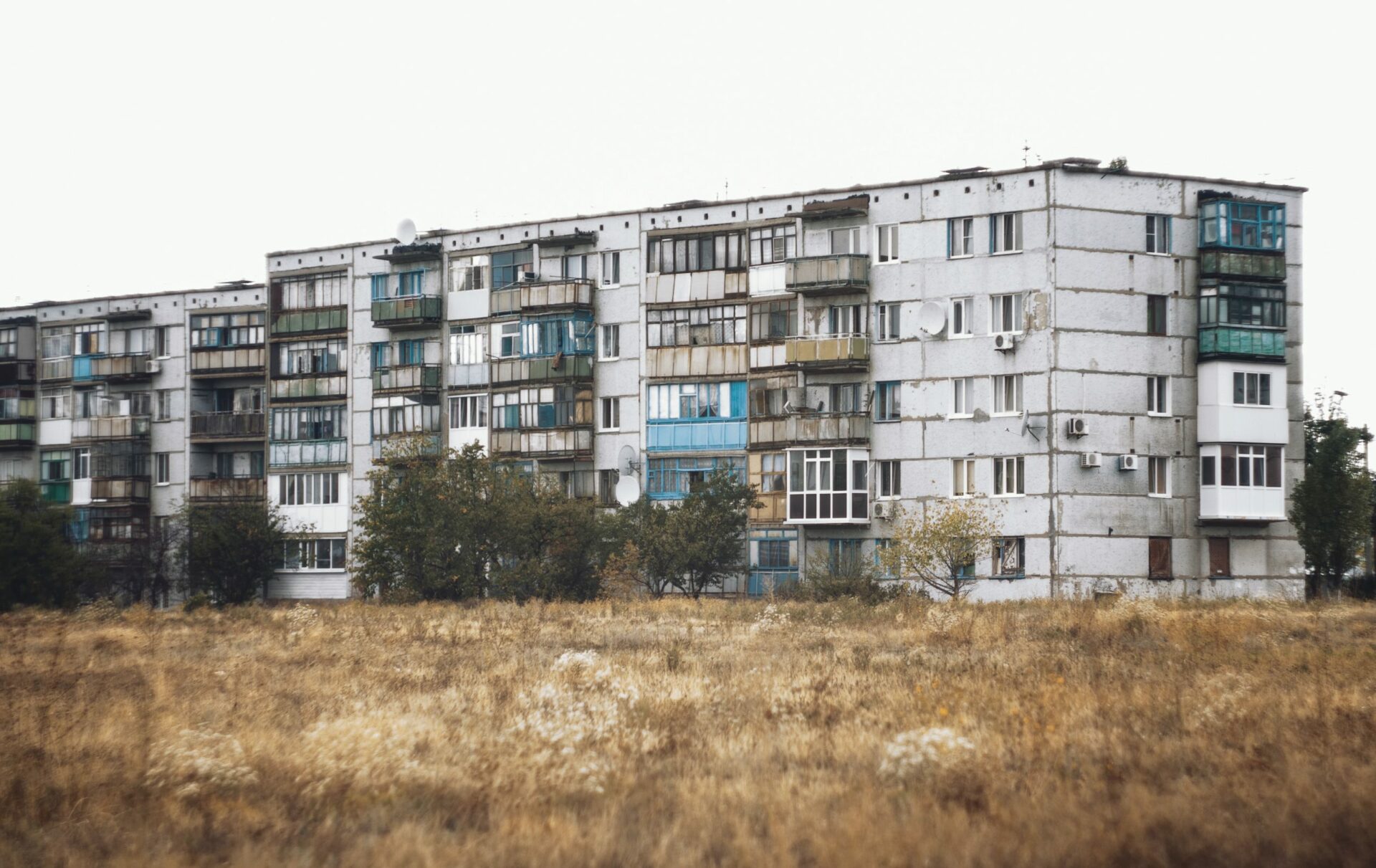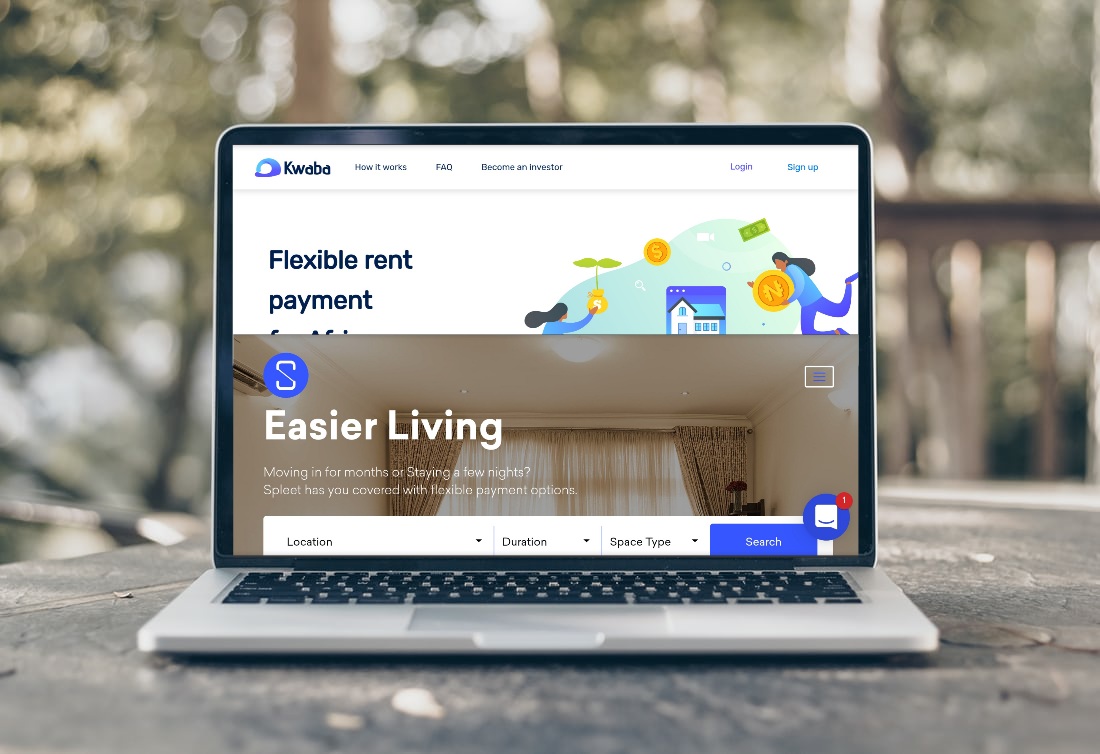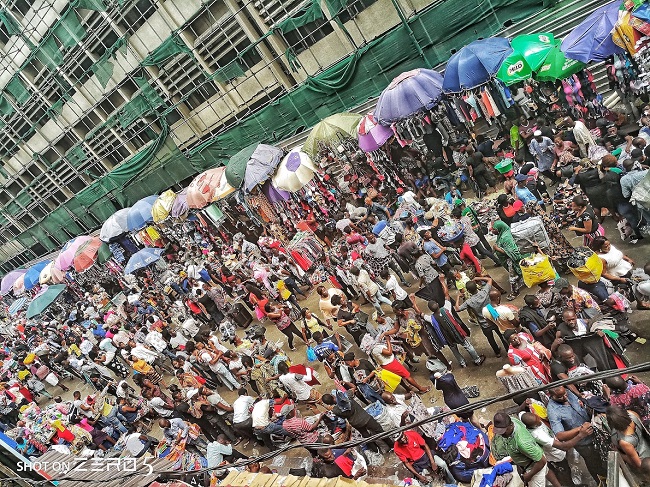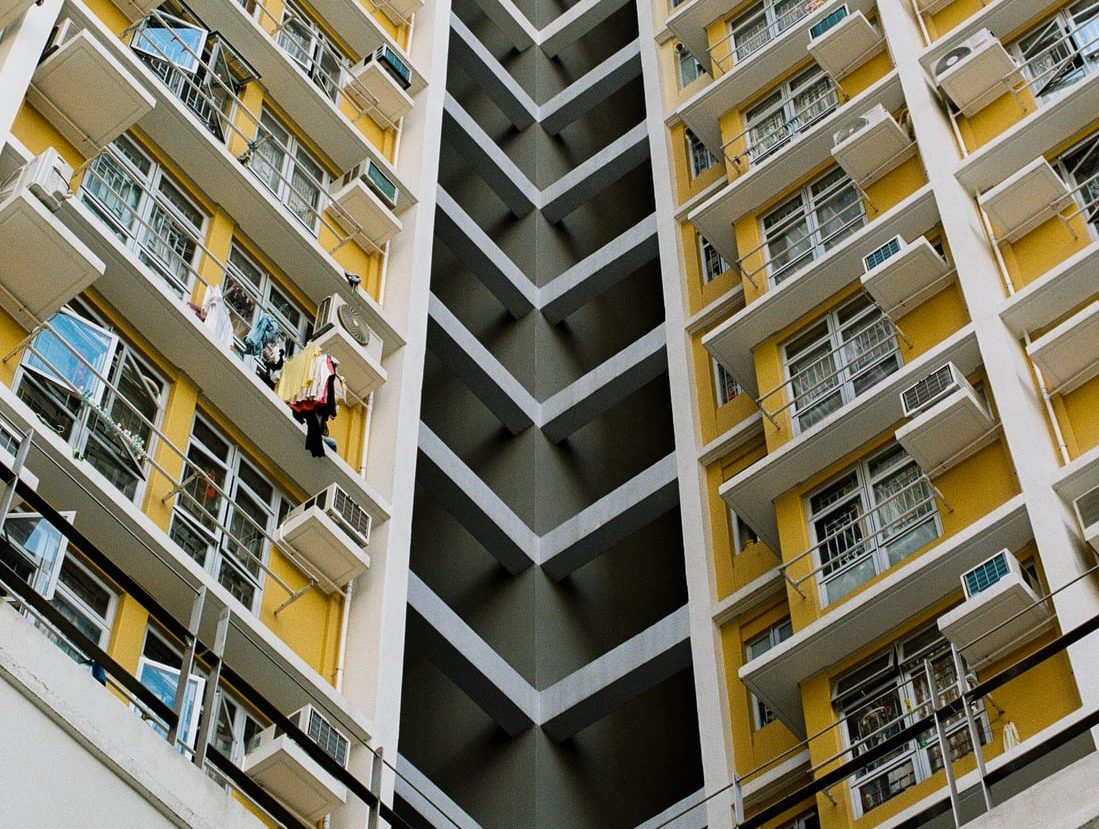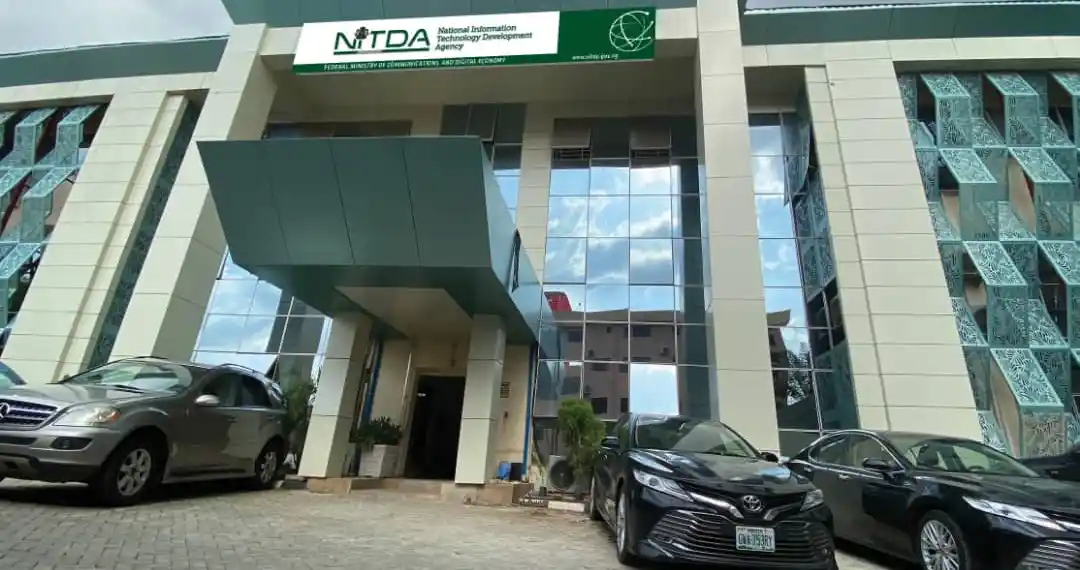Getting an apartment in Lagos, Nigeria’s economic hub, is challenging and sometimes frustrating.
“House hunting in Lagos is an extreme sport,” exclaims a disgruntled resident. Though it's a similar case across most major cities in the country, Lagos residents appear to have the worst experiences.
The teeming population in these cities means there are limited spaces for residents, so using a housing agent seems like an excellent way to secure accommodation. For many people, however, this hasn't been the case.
Perhaps affordability rather than availability is the major challenge. Depending on social class, people's considerations usually range between finding a place to lay their heads to getting a comfortable apartment or renting a home with the necessary amenities.
Whatever one's motivations and preferences are, their budget ultimately informs their choices. And while many digital real estate platforms have sprung up to ease the process of securing a house, it seems only high-net-worth individuals can afford them.
Using an agent is standard practice
The once-common ‘To Let’ signs are seldom seen on houses with vacant apartments in Lagos, probably because most spaces up for rent are now outsourced to agents.
Using an agent when house hunting in Lagos has been standard practice since the 80s.
A woman in her late 70s, who owns an old structure at Somolu, says agents became necessary when house owners no longer wanted to interact with tenants. The agents were brought in to eliminate haggling during meetings and handle situations where legal action has to be taken against tenants for breaching their tenancy agreements.
“Sometimes, these houses are inherited, and rental proceeds have to be shared among beneficiaries. Hence, one person cannot be put in charge because of trust issues,” she adds.

Join over 3,000 founders and investors
Give it a try, you can unsubscribe anytime. Privacy Policy.
Evolving digital platforms
Housing agents are easy to find – through referrals or properties listed on classifieds websites like Jiji.ng and PropertyPro – but rather than ease the rental process, they seem to hamper it.
Most of these agents don’t commit to meeting up or taking prospective clients to an apartment without a registration fee, usually between ₦2,000 ($5.17) and ₦3,000 ($7.75). And this is separate from their service charge, which is not less than ₦40,000 ($103.37).
Sometimes, the same property is listed on different platforms, or recycled images and non-existent structures are shared online only for people to be taken to uncompleted buildings. These are the lucky ones as some others have fallen victim to scammers who take money from multiple clients after promising them the same property.
These challenges have seen digital platforms evolve with classifieds adding control measures and disclaimer clauses that provide security for users, but that hasn’t curbed the menace of fake listings.
Probably in an attempt to solve the problem, tech entrepreneurs are designing products with improved assurances. Since an agent’s role is integral in the rental process, home rental startups act as such. Instead of just linking concerned parties -- landlord/estate agents and interested renters -- only to continue transactions offline, all rent management concerns are sorted remotely.
With a few clicks, one can escape ridiculous agency fees and unnecessary down payments, prevent fraud, and pick from a list of suitable choices regarding location and pricing. With clearly defined features and cost implications, renters can conveniently book and pay for apartments on a daily, weekly, monthly, quarterly, or yearly basis.
Familiar names like Spleet, Muster, and Kwaba, among others, focus on young working-class people and students living in cities like Lagos and Abuja. These secure and flexible on-demand housing options are usually located in highbrow areas.
Real estate startup founders present a valid reason behind their platforms, to encourage periodical rent payments. For Obinna Molokwu, Kwaba’s CEO, “We don’t see any sense why renters should pay their rent yearly when their wages are paid monthly.”
But the question remains, are they addressing the affordability challenge?
Finding comfort and convenience at a high cost
Pricing seems to be an additional problem to Africa’s existing housing challenge, especially since the payment of a lump sum for rent is mostly required. This means that with a problematic credit system, paying a year’s rent upfront without savings will be difficult.
Mr Daisi, a Lagos resident, recalls that a six-month down payment was usually requested as far back as the 90s, but there were other settlements required apart from the standard rental fee.
“Then, the costliest apartments were as high as ₦500 (~$29.4*) monthly. Apart from this, you had to pay for agreement and commission, damages, and an upfront electricity bill for a year. But whatever you paid as damages was returned when you wanted to leave the house. Agreement and commission were usually the same amount and were shared equally between the agent and the landlord,” he explains.
This practice of paying rent in advance in Lagos isn’t entirely different in 2020, but monthly rent payments are no longer allowed. Sometimes, agents/house owners even request two years of the rental fee in advance. And since they vary with the apartment’s quality, the extra charges can turn out to be precisely the same amount as the rent or more.
Given the steep costs this will amount to and how discouraging it sounds, are digital platforms any different? It is highly probable that there is some social class profiling involved in the process -- a claim these platforms will refute -- because an average salary earner might find it hard to afford their listed properties.
With a minimum wage of ₦30,000 ($78.65), as is the case with Nigeria, a salary earner will have difficulty considering these solutions. Excluding other monthly costs of living, the low-middle earners and professional workers in Nigeria, which are part of these platforms’ target market, may still not stand a chance.
Depending on how affluent the location is, a single bedroom mini flat can cost as high as ₦125,000 ($327.72) monthly. Not many in this social class will have this amount available. In general, people are still left to find a fair deal.
Other African cities are similar to Lagos
The rental and payment situation in Lagos isn’t alien to many other African nations. In the Republic of Benin, while payments are flexible, tenants are currently expected to pay a minimum of three months’ rent.
The need to secure an apartment through an agent usually comes with the location. For instance, getting an apartment is quite difficult in Cotonou compared to Porto-Novo, hence the need for agents who usually collect the value of a month’s rent for their service.
Trust, a resident, shares his experience with Techpoint Africa.
“I got a house recently, and I paid rent for four months, that means, three months advance and a recurring monthly rent payment. That means I will pay rent every month without having to use up the three months advance. The reason for this principle is to allow you to have money for another apartment if you decide to leave because the advance will be refunded when you do. Asides from this, you pay for utilities -- light and water -- and damages which are also refundable.”
In Accra, depending on the area, using an agent may be necessary if you can't contact the homeowner. From shared experience, it appears that Ghanaians are not exempted from their share of agents’ cruelty as some ask for two years’ rent payment.
"Aside from the rent, in most cases, you’ve got to pay the agent 10% of the rent if the apartment is not furnished. If it’s furnished, you pay the agent an equivalent of a month's rent.
It’s also important to note that some landlords collect a mandatory fee of GH₵ 500 to GH₵ 1,000 as a deposit to cover for any damage during your stay in the house. Some also accept one to six months utility bills in advance," Delali explains.
For Kenya, the advance payment is similar to Benin Republic’s and can even go as low as one month's deposit with some fixed charges for utility. For instance, an average unfurnished room could cost between Ksh 3,000 and Ksh 15,000. You can also bypass agents’ services if you are willing to do the leg-work and search for a house yourself.
"First, I do online and offline research,” says Nicole, a resident of Nairobi and Kisumu, Kenya, “I mostly research offline asking friends and family if they've heard of an empty place. Still, with the changing times, online has proved to be more effective. In terms of online, sometimes I make use of websites like jiji.co.ke where landlords/agents post houses available for rent.
“Then comes the viewing step where I go and see the houses so that I can filter depending on factors like location (how close it is to school or work), water availability, security, noise, and sometimes aesthetics (how the house looks). Also, the payment plan is sometimes a huge factor.”
A fundamental problem
Given the varying costs but similar payment format, there’s no telling that the situation would be any different with online platforms in these African cities. The pricing noticed on a number of Kenyan home rental platforms, for instance, mirrors the Lagos dilemma. This points to the possibility of an underlying structural problem which tech solutions cannot escape.
Because of the shortage of housing in major cities, particularly in some catchment areas, there will be a huge competition on the available ones that are liveable. Consequently, this drives up the cost in addition, especially when also factoring in inflation.
Proptech startups profit from the cost accompanying each property and thus would not be willing to list inferior houses for cheaper costs at the expense of the comfort they promise.
Molokwu says a significant challenge is matching a renter with limited financial capacity to their ideal property. A valid explanation for this is because these tech products are dependent on existing infrastructure and pricing dynamics.
This explains why the founder of an Abuja-based real estate startup insists that proptech startups are profitable ventures, and they wouldn’t want to jeopardise this by listing properties with no possibility of yielding gains. Hence, they stick to lodgings in high-end locations in the cities. In other words, making a deliberate loss is not a reasonable option.
If the government plays its role
Since this is majorly caused by a structural problem, government intervention is highly recommended. Speaking on the housing issues peculiar to each location, our respondents reiterated the role the government has to play if affordable housing is to be a reality.
Another recommendation is to prosecute house owners who extort citizens through multiple years down payments.
The president of Benin Republic recently prohibited house owners from insisting on a year or two years rent advance. At that time, it was rumoured that Nigerians migrating to Cotonou at the time offered landlords a huge amount of money to acquire luxury accommodations.
It is worth noting that the Lagos Tenancy Law supports payments in installments. This is one of a resident’s rights, albeit rarely upheld.
Section(4)(1) of the law disallows requesting specific rent advance payment.
It shall be unlawful for a landlord or his agent to demand or receive from a sitting tenant rent in excess of six (6) months from a monthly tenant and one (1) year from a yearly tenant in respect of any premises without prejudice to the nature of tenancy held at the commencement of the tenancy.
However, the effect of these bye-laws might not be seen if there are no pricing regulations in place. This will allow every citizen to afford a place that suits their economic class.
Completing more low-cost housing projects is one of the incentives proptech startups need to provide affordable housing.
Although not assured, there is a greater chance that innovation will contribute to providing rental homes for even the urban poor once the infrastructural shortfalls are properly addressed.
Featured image credits: Alexander Trukhin on Unsplash

